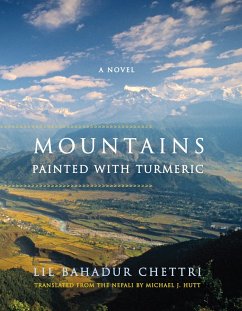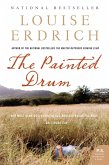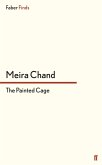Since its publication in the late 1950s, Mountains Painted with Turmeric has struck a chord in the hearts of hundreds of thousands of Nepali readers. Set in the hills of far eastern Nepal, the novel offers readers a window into the lives of the people by depicting in subtle detail the stark realities of village life.
Carefully translated from the original text, Mountains Painted with Turmeric tells the story of a peasant farmer named Dhané (which means, ironically, "wealthy one") who is struggling to provide for his wife and son and arrange the marriage of his beautiful younger sister. Unable to keep up with the financial demands of the "big men" who control his village, Dhané and his family suffer one calamity after another, and a series of quarrels with fellow villagers forces them into exile.
In haunting prose, Lil Bahadur Chettri portrays the dukha, or suffering and sorrow, endured by ordinary peasants; the exploitation of the poor by the rich and powerful; and the social conservatism that twists a community into punishing a woman for being the victim of a crime. Chettri describes the impoverishment, dispossession, and banishment of Dhané's family to expose profound divisions between those who prosper and those who are slowly stripped of their meager possessions. Yet he also conveys the warmth and intimacy of village society, from which Dhané and his family are ultimately excluded.
Carefully translated from the original text, Mountains Painted with Turmeric tells the story of a peasant farmer named Dhané (which means, ironically, "wealthy one") who is struggling to provide for his wife and son and arrange the marriage of his beautiful younger sister. Unable to keep up with the financial demands of the "big men" who control his village, Dhané and his family suffer one calamity after another, and a series of quarrels with fellow villagers forces them into exile.
In haunting prose, Lil Bahadur Chettri portrays the dukha, or suffering and sorrow, endured by ordinary peasants; the exploitation of the poor by the rich and powerful; and the social conservatism that twists a community into punishing a woman for being the victim of a crime. Chettri describes the impoverishment, dispossession, and banishment of Dhané's family to expose profound divisions between those who prosper and those who are slowly stripped of their meager possessions. Yet he also conveys the warmth and intimacy of village society, from which Dhané and his family are ultimately excluded.
Dieser Download kann aus rechtlichen Gründen nur mit Rechnungsadresse in A, D ausgeliefert werden.









